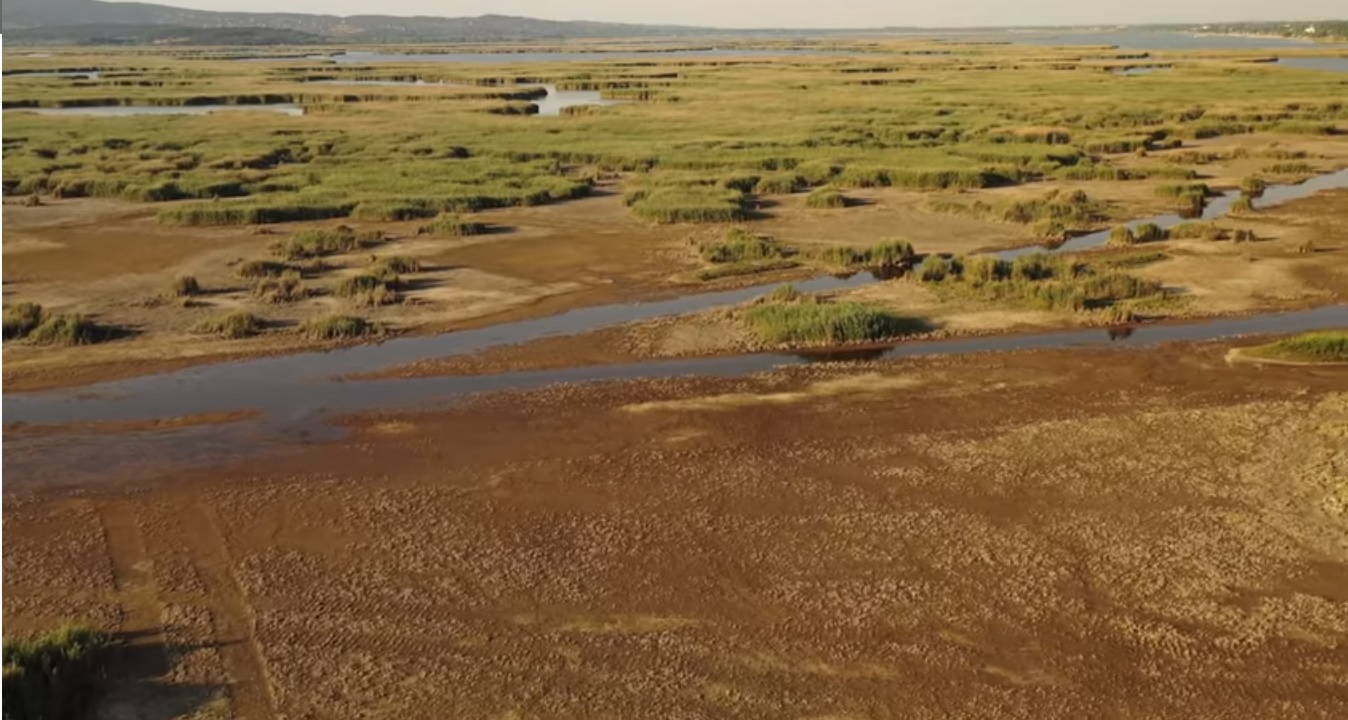Lake Velence, the third largest natural lake and one of the most popular holiday resorts in Hungary, is located only 50 km from Budapest. Also known as the “Sunshine Lake”, it has made more headlines than usual in 2022. Last year, the water level of the lake had dropped to a critically low level. Although there was no similar threat this year, a study suggests that the lake could simply ‘disappear’ in our lifetime.
Last summer, the water level in Lake Velence dropped to a low of 58 cm in some places, instead of the average 158 cm, a level never seen in decades! On the beaches, holidayers were greeted by muddy water instead. The low and warm water has also been accompanied by mass fish kills, with more than 1.5 tonnes of fish were removed from the lake last year. As a result, a bathing ban was imposed on one beach due to poor water quality. If we don’t want to see a dried-out Lake Velence, we have to be careful of our groundwater resources close to the lake, writes Masfelfok.hu
Lake Velence has dried up several times in history

Since 2022, the issue has regularly been the subject of public debates. Many wonder if Lake Velence can really dry up, and if so, when? As far as we know, it has “dried up” fourteen times in its 1500 years lifetime, on average of about once every 100 years.
Similar example was last recorded between 1863 and 1866, when, according to rumours, the Hussar Regiment of Fehérvár practiced in the dusty mud. Hence, from a geological point of view, drying up is a natural alteration of the lake. The question, is to what extent this is influenced today by the increasing man-made climate crisis.

As per the researchers, it seems certain that the increasing difference between annual precipitation and evaporation would dry out the lake. In recent decades, except of 2010, annual evaporation has always been higher than precipitation.
However, the above mentioned analysis shows that the water balance of Lake Velence has always recovered after periods of water shortage. The shortage compensated by both natural processes and human interventions: the surface water inflows from the catchment area, previously ignored groundwater inflows and the two reservoirs in Pátka and Zámolyi.
Two different scenarios
The researchers used a so-called climate simulation to model future changes in the lake level. The water experts created a hydrogeological model using three regional climate simulations for the period up to 2050. They wanted to know what harmful impact human activities caused concerning the state of the lake. Two scenarios were considered. One was an optimistic version with immediate reductions in carbon dioxide emissions, assuming a maximum global warming of 2 degrees Celsius by 2100. The other, pessimistic scenario assumed that by 2100 humanity will badly fail to reduce emissions, and fossil energy use will continue to increase.
No reason to panic?
Based on the results, the authors of Masfelfok.hu state that the annual rainfall-evaporation balance will not change significantly over the years in the Lake Velence area if the optimistic scenario proves to be true. In the pessimistic scenario was to happen, however, the delicate water level balance becomes so disrupted that we can expect the worst by 2050. According to the researchers, the results of the simulations with the hydrogeological model so far show that the lake receives a considerable amount of water from below the surface, about 3,100 cubic metres per day, which is responsible for an average rise in the water level of almost 5 centimetres per year.
In other words, the fate of Lake Velence could depend on how we manage the groundwater resources around the lake – the researchers stress.
Oh, sure. Just like Mt. Everest was supposed to have melted, island nations were supposed to have disappeared, Manhattan was supposed to be under water, the glaciers on both poles were supposed to have vanished, and polar bears were supposed to have gone extinct… – and all that was supposed to take place by 2015! After all, the “experts” and “scientists” said so: at “conferences,” in “academic” “journals,” in the media, in college classrooms, etc. Now this lake will go “poof!”. I guess we better give more money and power to the U.N., St. Greta, Uncle Klaus, and their greenie puppets. It’S wILl mAkEs the wEaTHeR m0rE gOoDEr!